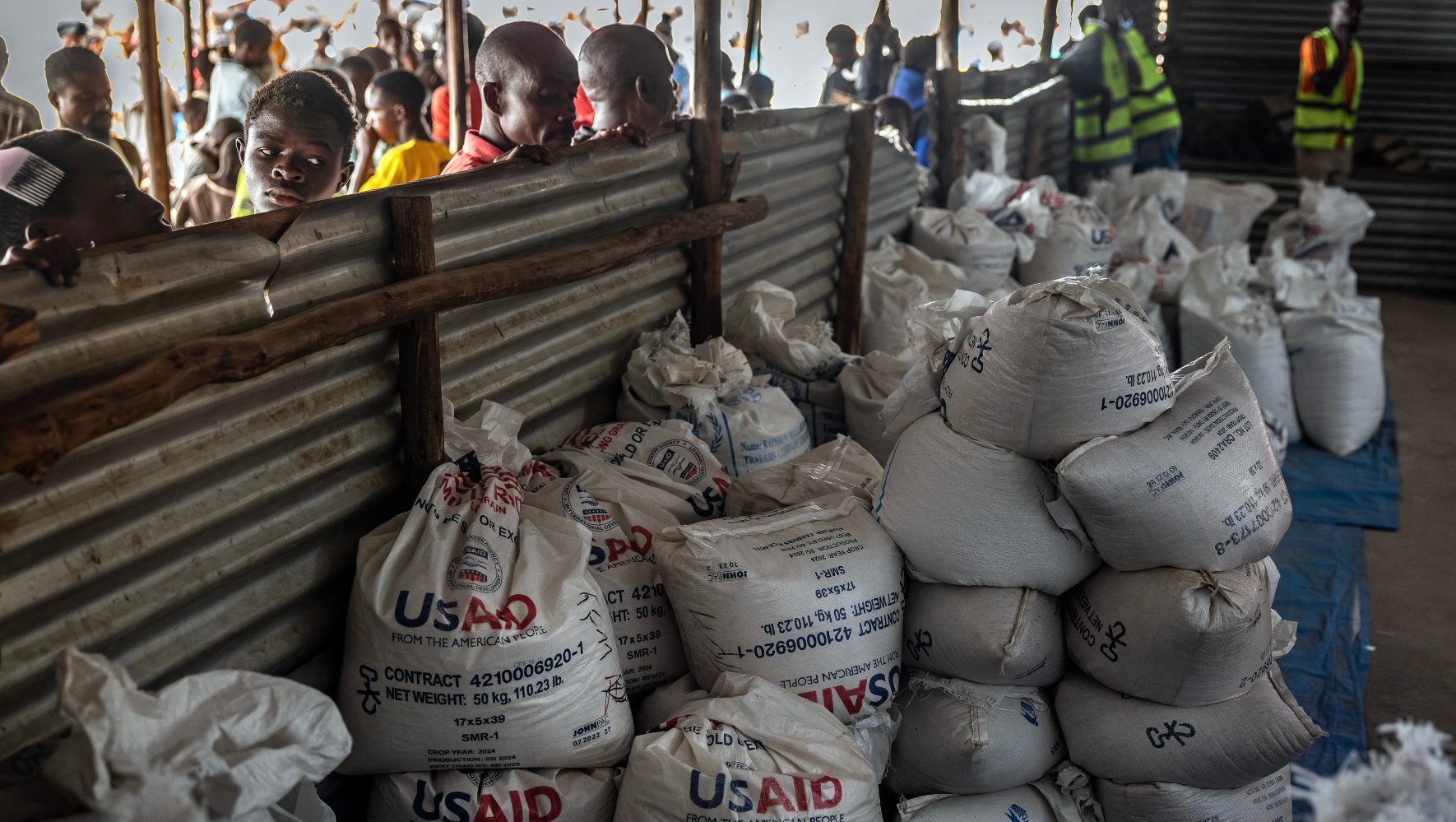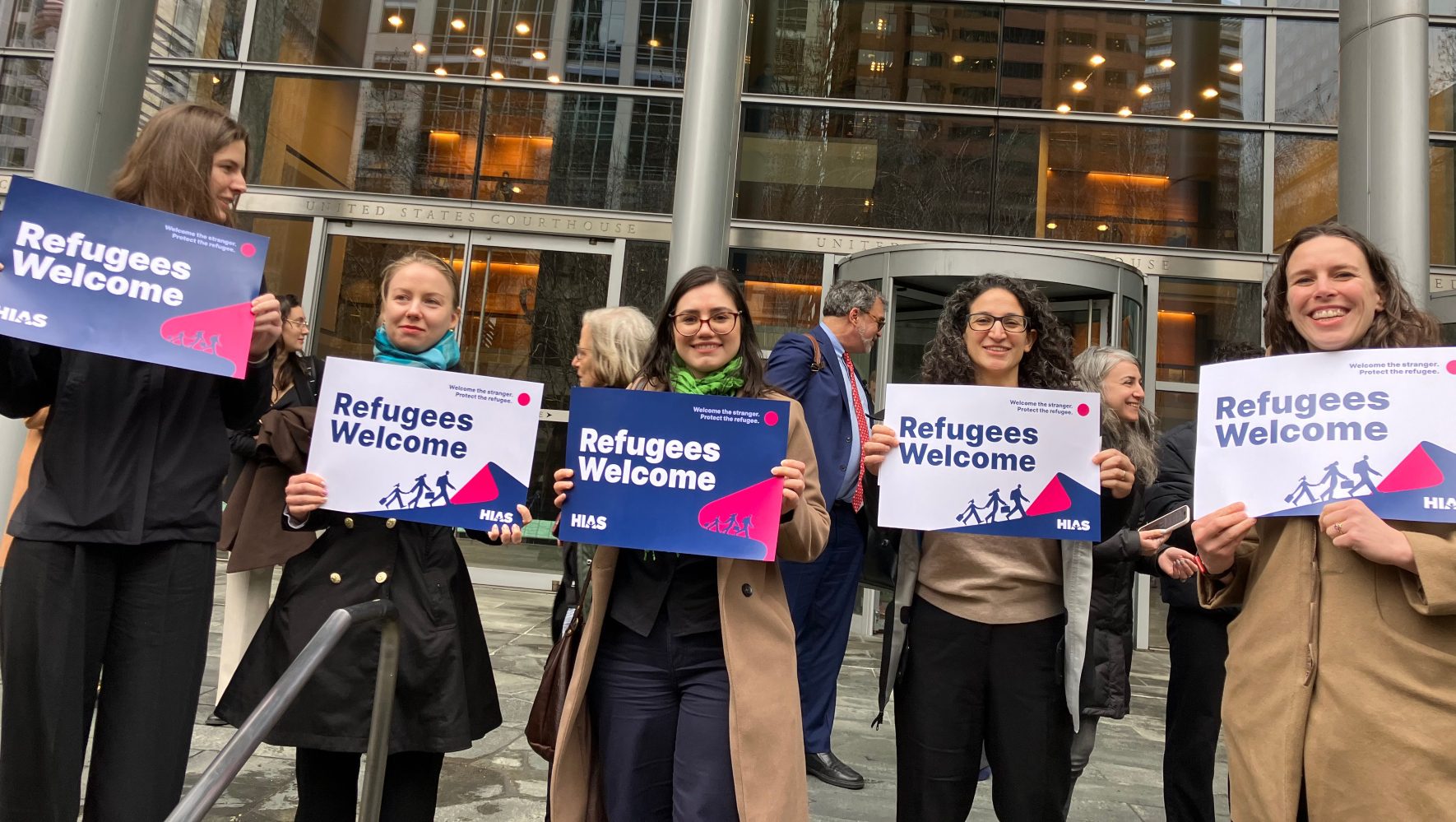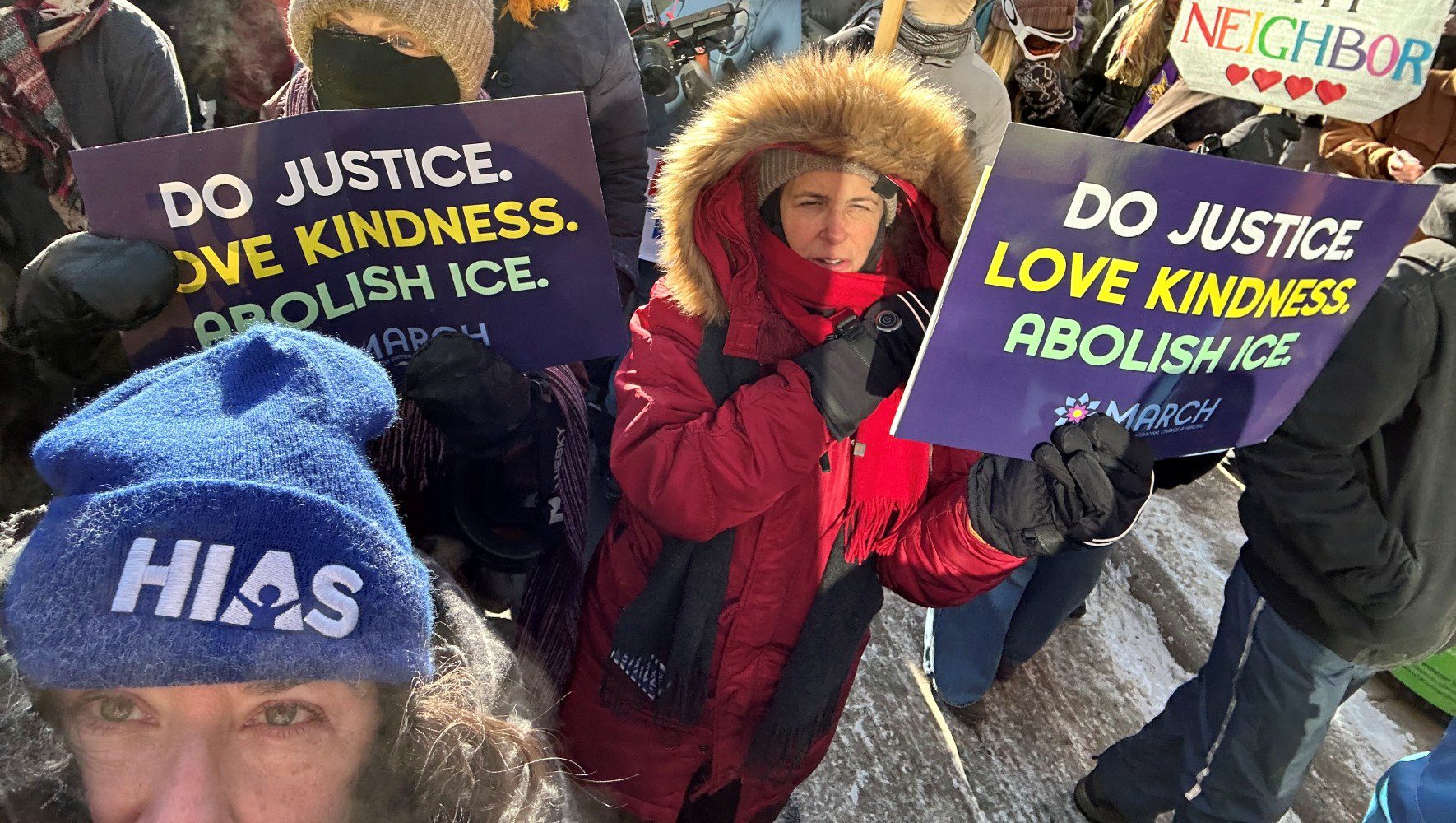
For decades, and for less than 1% of the federal budget, the U.S. has brought food to the hungry, medicine to the sick, shelter to refugees, and so much more.
Now, all that is at risk.
Since coming into office, the Trump administration has launched an unprecedented and devastating assault on America’s longstanding, bipartisan legacy as the world’s largest provider of humanitarian aid. On its first day in office, the Trump administration issued an immediate pause on all foreign aid, then quickly got to work dismantling the U.S. Agency for International Development (USAID), the world’s premier humanitarian and development agency. In the weeks and months that followed, the U.S. government threw the humanitarian sector into chaos: issuing, then rescinding, then reissuing letters terminating life-changing and life-saving assistance programs, refusing to make payments for aid already delivered, pursuing an opaque “review” process, and publicly vilifying and mocking foreign assistance work and workers.
The effects have been immediate and ongoing. Hospitals are closing, food sits in warehouses at risk of rotting, and children are going without education. HIAS alone was forced to suspend programming impacting more than 450,000 people, including protection for displaced and at-risk children, mental health and psychological support for people who have experienced unthinkable trauma, projects to help refugees become more self-reliant, and support to women and girls who have survived trafficking and other forms of violence.
Give today
What are some real-world examples of the consequences of these cuts?
In March, the New York Times profiled HIAS’ work with Sudanese refugees in Chad and the impact of these cuts. “They provided food supplies and water, and their support for schools allowed our kids to learn,” said one Sudanese resident of a refugee camp. “It allowed us to buy and sell things. Mothers could work in trading and not struggle.” This work is no longer possible.
In Colombia, where the foreign aid cuts have affected millions of people, essential health and protection services for migrants have been discontinued. Programs to promote peace, security, and economic development for migrants and the communities hosting them are now closed. The changes have wreaked a psychological toll on displaced people who relied on these services and have left them vulnerable to human trafficking and smuggling. “I feel defeated because I did not achieve the goal I wanted to achieve,” said one migrant interviewed by HIAS in Necoclí. “I feel discouraged.”
These examples are not isolated. The drastic cuts to U.S. foreign aid will increase poverty and instability, lead to the spread of infectious diseases, and ultimately, cause many more preventable deaths around the world.
What further attacks on humanitarian aid are on the horizon?
The Trump administration’s suspension of foreign aid during its first week in office — and its subsequent evisceration of USAID — signaled that ending America’s proud bipartisan legacy as the world’s largest provider of assistance to vulnerable people around the world would be a signature priority of his second presidential term. In recent weeks, the administration has sought to codify its initial actions through two legislative initiatives: a rescissions package — a rarely-used tool that would claw back funding that this Congress has already approved for humanitarian programs and other foreign aid this year — and a budget request for next fiscal year with unprecedented cuts to international assistance.
On May 2, the White House unveiled a budget blueprint for Fiscal Year 2026 (FY 26), an important signal to Republican Congressional leaders about the Trump administration’s fiscal priorities in the coming year. The blueprint would cut international spending by nearly half, from $58 billion in 2025 to $31 billion. On top of this, President Trump issued a “rescissions” memo to Congress requesting the elimination of $8.3 billion in foreign aid, including crucial funding for education, HIV/AIDS prevention, mental health support, hygiene kits, and other vital resources. (The rescissions memo passed the House on Thursday; the Senate will likely vote on it in July.) The President has signaled his intent to request even further cuts to this year’s budget, totaling a whopping $20 billion in spending already approved by Congress. Combined with the FY26 budget request, that would signify an 87% drop in foreign aid.
For a tiny fraction of the federal budget, the Trump administration and Congress could save hundreds of thousands of lives. Their refusal to do so is outrageous and tragic.
For a tiny fraction of the federal budget, the Trump administration and Congress could save hundreds of thousands of lives. Their refusal to do so is outrageous and tragic.
What is HIAS doing to respond to these foreign aid cuts? How can I contribute?
In February, HIAS and our partners sued the administration over its cuts to aid, and we are continuing to fight to preserve lifesaving assistance. But there’s far more that can be done — and we could use your help.
Members of Congress need to hear about the importance of robust foreign assistance for lifesaving aid such as food, clean water, and medicine as well as efforts to tackle the root causes of conflicts and crises such as peace-building programming and poverty-focused development assistance.
The House has passed the rescissions bill — but that does not mean its passage in the Senate is a fait accompli. Take action here to contact your senators and urge them to reject the rescissions package and restore the foreign aid funding for this year that they had already approved.
You can also make a donation to HIAS and other organizations who are working, even in this challenging landscape, to do all we can to provide assistance to refugees and displaced people.



